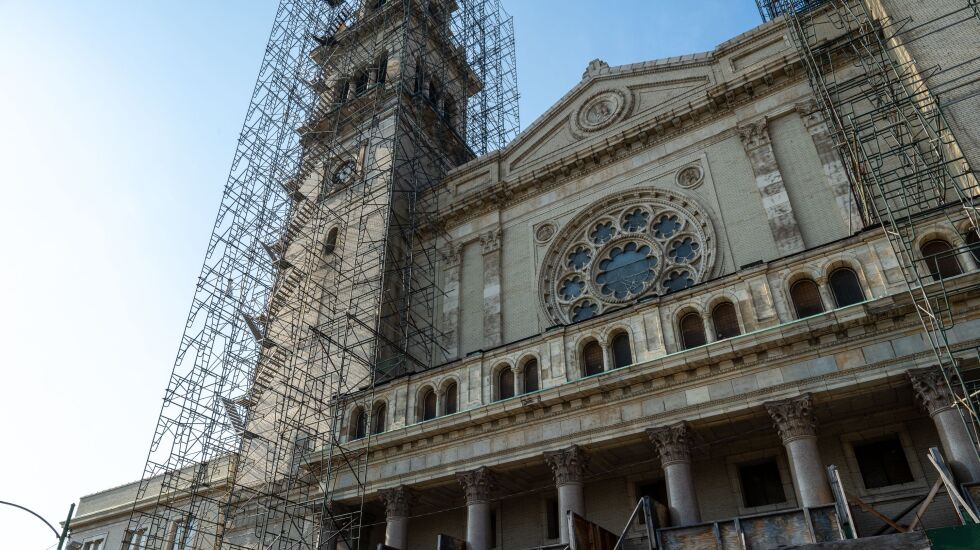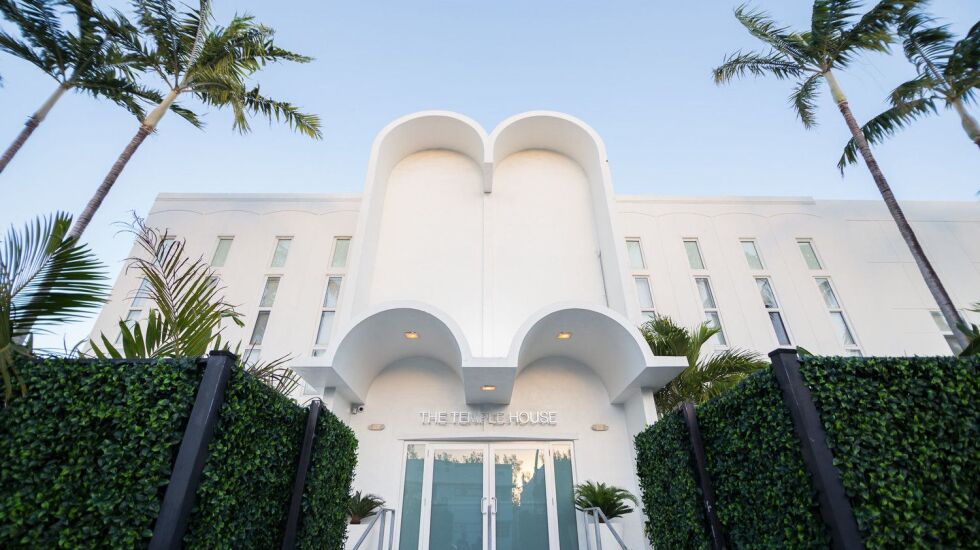
St. Adalbert Catholic Church — the century-old neighborhood icon that dominates the Pilsen skyline and has lately been battled over — might finally get resurrected by a Miami-based company as an events space, if the community will have it.
“We believe it’ll bring great value, great opportunities and a great public space to the neighborhood,” said Felix Gonzalez, a lawyer representing the out-of-state company. “This is going to be a way to preserve a very beautiful building.”
Gonzalez confirmed Monday that Anew Holding LLC had the building under contract and planned to turn it into a “venue for weddings, bar mitzvahs, bat mitzvahs, corporate events” in the style of Temple House, a converted synagogue in Miami.
That venue has since served as the location for music videos for artists One Direction, Lil Wayne and Drake and for religious events exploring Jewish Kabbalah, according to reporting by the Miami Herald.

The purchase could provide a solution for what’s been a nagging question for the Pilsen neighborhood since the Archdiocese of Chicago announced in 2016 the church would close, although some in the community hope for other more publicly oriented solutions.
The church, at 1650 W. 17th St., was built in the early 20th century by Polish immigrants and modeled after St. Paul’s Basilica in Rome. It was completed in 1914 and closed in 2019, when the archdiocese merged the parish with St. Paul’s, another Catholic church about a mile away in Pilsen.
St. Adalbert was closed because of the large cost of repairing it, said Raul Serrato, a former St. Adalbert parishioner and current member of St. Paul’s financial board.
Repairing the church’s 185-foot towers — the aspect of the building most in need of repairs — would cost about $4 million, Serrato said. After that, upkeep would cost around $20,000 a month.
Since it closed, the neighborhood has tussled over its fate. Last year, the archdiocese and St. Paul’s parish transferred a statue — an exact marble replica of Michelangelo’s Pieta — from it to St. Paul’s after months of protest that culminated in four people being detained for trying to block its removal.
In August, former parishioners and preservationists again were moved to protest after the archdiocese and the parish began removing stained glass from the building. That prompted the city to give it a landmark recommendation, an early step in the process that gives it the same protections as a formal landmark and would prevent the removal of more stained glass.
The archdiocese and parish have opposed the landmarking recommendation because “it complicates the sale of the property,” Serrato told the Sun-Times.

Gonzalez said a “few hurdles” remained before the sale could be finalized, including opposition to the sale by groups that would prefer the building remain a religious site, although the archdiocese deconsecrated it after the final Mass in 2019.
“I hope that this sale in particular falls through,” said Judy Vazquez, a former parishioner, suggesting it instead serve as a “place for spiritual retreats” or have its purpose decided on by the local community.
Local Ald. Byron Sigcho-Lopez (25th) said that sentiment of having the building’s purpose decided on by the local community was broadly expressed at a meeting Anew Holdings LLC had with community members recently.
“We want to make sure we repurpose empty parishes, with the community, based on the needs we have,” he said. “We have the will in the city to make this work for the benefit of Chicagoans and future of Chicagoans.”
The archdiocese did not respond to repeated requests for comment.
Michael Loria is a staff reporter at the Chicago Sun-Times via Report for America, a not-for-profit journalism program that aims to bolster the paper’s coverage of communities on the South Side and West Side.







